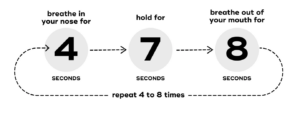
Mediterranean style eating is now proven to present more health benefits then any other dietary regiments.
It keeps the blood sugar down, hence reduces the risks of obesity, diabetes, many forms of cancer and other health complications including dementia. It is also good for your skin, as health fats and greens in the diet slow down aging, reduces inflammation and reduces spots outbakes.
Also, if you need to lose weight, this approach to eating in combination with reduction in the amount of food you eat tend to cause easier weight loss with less hunger.

Here are some tips on how to adopt Mediterranean style eating to your day to day life.

You may crave carbohydrates at first, but this settles within days. As your insulin levels settle down, so your appetite and hunger spikes reduce.
It is also important to drink plenty of fluids (i.e. water or other sugar-free drinks). It is currently recommended that an adult should be drinking around 3 litres of fluids a day.
In general, to keep us healthy, current guidelines on physical activities for adults aged 19-64 advise achieving at least 50 minutes a week, of moderate aerobic activity such as cycling or brisk walking as well as strength exercises on two or more days a week. These should work all the major muscles (legs, hips, back, abdomen, chest, shoulders and arms).
However, if you are short for time Hight Intensity work outs has been shown to demonstrate significant health improvement.
You can find one online which is easy to do and requires little equipment.
Sleep is important for all body function and is part of general wellbeing. An adult needs 7-9 hrs of quality sleep a day. Poor sleep is responsible for poor skin quality and weight gain. Below are some tips to improve sleep to look and feel better.
Good sleep habits can help with good night sleep.
https://www.smilingmind.com.au
Provides a completely free of charge app full of useful resources including mindfulness and meditation.
There are number of free resources that are available to deal with everyday stress
https://www.nhs.uk/every-mind-matters/mental-health-issues/stress/
https://www.nhs.uk/mental-health/self-help/guides-tools-and-activities/tips-to-reduce-stress/
The 4-7-8 breathing technique is routed in yoga and is good for reducing stress, helping with anxiety and falling asleep.
It involves breathing in for 4 seconds, holding the breath for 7 seconds, and exhaling for 8 seconds.

If you are going to make a change in life no matter how small or big it is, it is worth considering that takes both time and space. Hence, work, home and social arrangements may need to be adjusted.. To succeed in implementing these changes, even if they are only temporary, you may need to rethink your personal and professional boundaries.
In general, boundaries are the limits and rules of engagement we set for ourselves and others within social interactions and relationships. When your personal and physical space is respected, you and others are more likely to feel heard, validated, appreciated and safe.
Below are some examples of most common boundaries that apply to all to work, home, intimate, personal relationships, health and pretty much anything else.
Re-evaluation of boundaries requires a degree of self-awareness, however the simplest way to do it, we find, is to consider the 5 main domains of our lives: Work, Home (children, family members, pets), Partner, Social (Friends/other non-work related engagements), Self (menopause, andropause, health issues, whatever makes you happy, mental health). New categories can be created as appropriate.
Then use a traffic system Green (satisfied with current arrangements), Amber (not sure/needs further thought) and Red (needs adjustment).
See example below

Once this is completed you can then clearly see what needs to be adjusted to give you more space to get what you need.
In order to negotiate the boundaries it is important to be assertive.
Assertive, does not mean aggressive. It means been able to express yourself and been able to show respect with, it means been open and honest without been hostile or offensive.
Some people feel that it is easier to say “yes” then to say “no”. But saying “no” is the key to establishing boundaries, reducing stress, resentment and limiting regret.
If you really find it difficult to say no, it might be necessary to practice it in front of the mirror.
Examples of saying “No” when you don’t have time.
Saying “No” to an Invitation or Offer